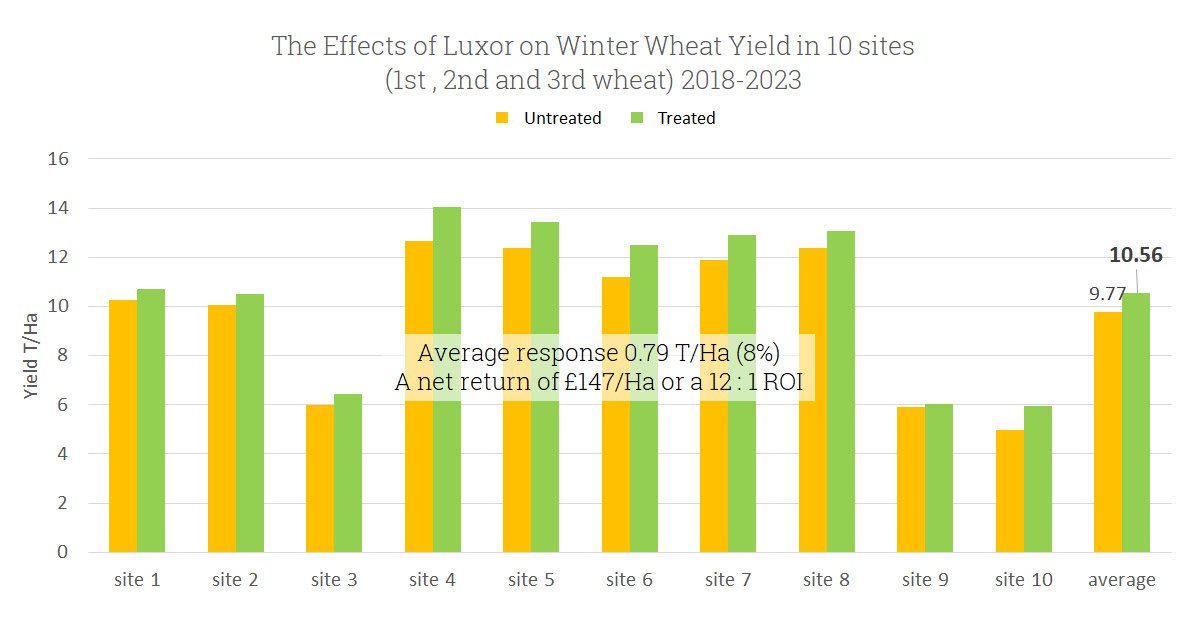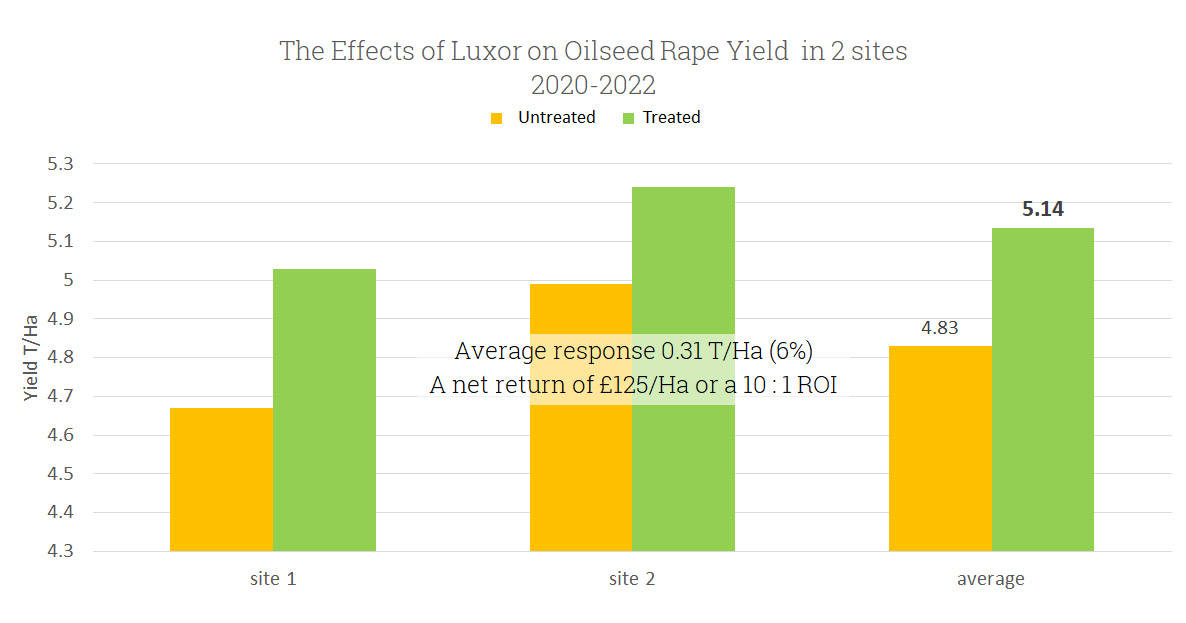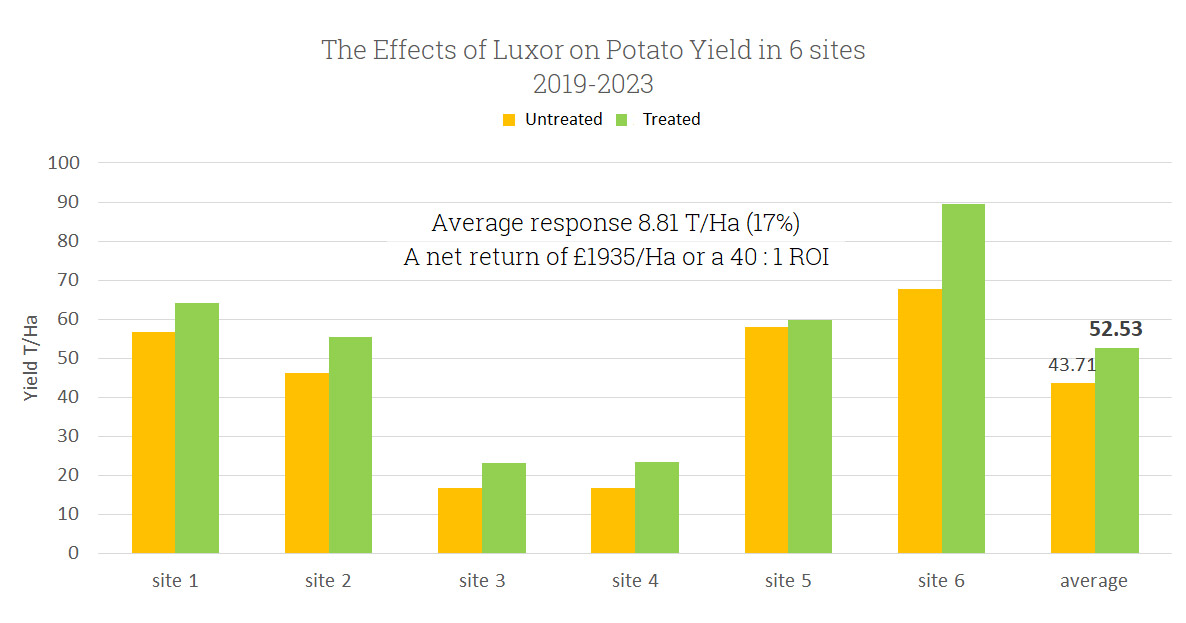LUXOR
The Crucial Role of Phosphorus in Plant Life
10 Trials
WHEAT
(@£200/t)
2 Trials
OSR
(@£450/t)
6 Trials
POTATOES
(@£225/t)
Phosphorus plays a vital role in the world of plants, serving not only as a fundamental component in key plant structures but also as a catalyst in various essential biochemical reactions. Its significance is most evident in its ability to capture and transform the sun’s energy into valuable compounds crucial for plant growth.
Phosphorus stands as an indispensable element within the framework of DNA, the genetic code that serves as the memory unit in all living organisms. Additionally, it plays a pivotal role in RNA, the molecule responsible for interpreting the genetic information encoded in DNA, facilitating the creation of essential proteins and other compounds necessary for plant structure, seed production, and genetic transmission. Phosphorus bonds are the linchpin connecting the structures of both DNA and RNA.
Moreover, phosphorus assumes a critical role in ATP, the energy currency of plants. ATP is generated during photosynthesis and incorporates phosphorus within its structure. This energy molecule functions tirelessly from the earliest stages of seedling growth to the formation of grains and the plant’s ultimate maturity.
Therefore, it becomes evident that phosphorus is indispensable for maintaining the overall well-being and robustness of all plant species.
Some specific growth-related benefits associated with phosphorus include:





